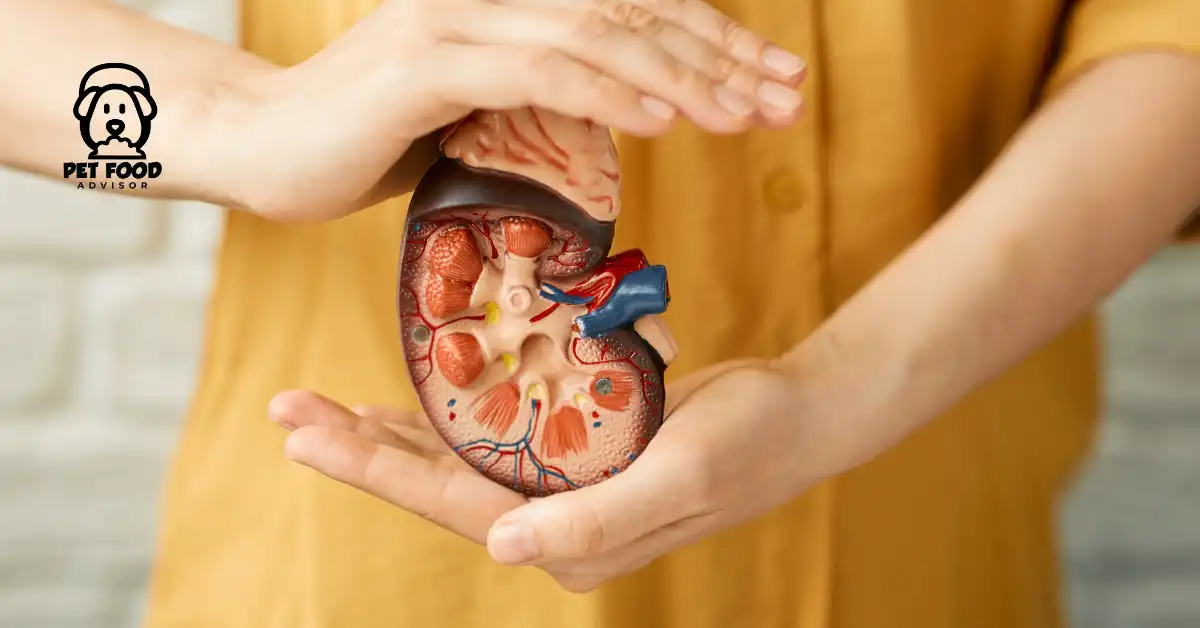Benefits of Adding Beef Kidney For Dogs Diet | Prepare Organ Meat
If you want to make your dog healthy, consider giving them beef or lamb kidneys. These ingredients provide them with essential nutrients and a tasty option. Beef kidneys for dogs offer key vitamins like A, D, E, and K, minerals such as Iron and zinc, and important proteins for their growth.
The kidney area is also enjoyed by the dogs to eat. Dog owners sometimes wonder whether giving their dogs raw meat is a good choice. You don’t need to worry about it. Your dog can eat kidneys, and it is beneficial for its health.
Advantages of Beef Kidneys for Dogs’ Health
Beef kidneys are beneficial for your dog as they provide vitamins and minerals that contribute to your dog’s health. This includes essential vitamins such as A, B6, B12, C, Niacin, Riboflavin, and Thiamine. All these vitamins are useful for the dog’s health and maintain the growth of your dog.
Beef kidneys contain valuable minerals like Iron and selenium. They serve as an exceptional source of protein and are rich in omega-3 fatty acids. The nutrient density of beef kidneys and other organ meats is truly remarkable. Many veterinarians recommend including them in your dog’s diet to achieve a well-balanced nutritional profile that includes meat and bones.
The presence of key nutrients like Vitamins C, A, B6, and B12, Thiamin, Riboflavin, and Niacin, along with essential trace minerals, Iron, selenium, protein, and heart-protective Omega 3, underscores the remarkable benefits of beef kidneys. Their anti-inflammatory properties make them particularly advantageous for dogs with heart health concerns and those with arthritis.
Read More: Beef Meal a Healthy Ingredient in Dog Food
Nutritional Benefits of Beef Kidneys for Dogs
Beef kidneys offer a range of essential nutrients that contribute to your dog’s health and well-being.
Vitamin A
It enhances your dog’s immune response, supports bone health, and optimizes vision.
Vitamin B6
It helps maintain normal glucose levels in your canine friend and supports immune function and nervous system health.
Vitamin B12
Beef kidney for dogs supports cellular health and metabolism in your pup.
Vitamin C
It is an antioxidant that bolsters your dog’s immune system to combat diseases.
Riboflavin
It promotes healthy digestion and metabolism in your dog.
Niacin
It offers anti-inflammatory properties that aid in supporting your dog’s immunity.
Thiamine
It assists digestion and metabolism, contributing to your dog’s health.
Omega-3 Fatty Acids
It supports a healthy immune system, brain function, vision, and skin health in your dog.
Preparing Kidneys for Your Dog’s Meal
If you want to include the kidneys in your dog’s diet, then you can serve them either cooked or raw. Both raw and cooked kidneys are safe for your dog to consume. But, if you are concerned about the potential bacteria or the cleanup involved with raw meat consumption, cooking the kidneys is your best choice.
Cooking Beef Kidney for Dogs
Cooking beef kidneys for your dog is a simple process requiring only two ingredients. One is beef kidneys, and the other is water.
Instructions
- You can start cooking by cutting the kidney into bite-sized pieces and placing them in a bowl of cold water. You can soak it for almost 15 to 20 minutes.
- Fill a small to medium-sized pot with water and bring it to a boil over medium-high heat.
- Once the water is boiling, reduce the heat to medium and add the soaked kidney pieces to the pot. Cover the pot with the lid slightly cracked and let the kidneys boil for about 8 minutes.
- To eliminate any residual unpleasant flavors, rinse them under cool water.
- Ensure the cooked kidneys have cooled completely before serving them to your dog.
Can Dogs Eat Cooked Beef Kidney?
Yes, dogs can enjoy cooked or raw beef kidney. Cooking is recommended if you are unfamiliar with feeding raw meat to minimize the risk of harmful bacteria.
How Much Kidney Should You Feed Your Dog?
The ideal amount of beef kidney for dogs depends on its size and activity level. Generally, experts suggest that organ meat, including kidney, should constitute at most 5-10 % of your dog’s diet. If your dog consumes one pound of food daily, their kidney intake should be at most 1.6 ounces.
The appropriate amount of beef kidneys to feed your dog varies based on age, size, activity level, and overall health. Prioritizing a well-rounded diet that fulfills your dog’s nutritional requirements and avoiding excessive intake of specific proteins or organs, like kidneys, is crucial. For instance, if your dog’s daily calorie requirement is 500, an adequate serving size of beef kidney would be around 50 calories or roughly 50 grams. It’s worth noting that wet foods can be particularly beneficial for dogs dealing with kidney and urinary issues. A slightly larger portion of raw beef kidneys can be considered for dogs with kidney disease.
Offering organ meats like kidneys and liver should be balanced with other food sources to prevent nutrient imbalances that could lead to health complications. A varied and well-rounded diet ensures your dog receives the nutrients for optimal health.
Overfeeding kidneys can elevate cholesterol levels and blood pressure in dogs. Adhering to the appropriate portion size is important to ensure your dog’s health and well-being.
Considerations When Feeding Beef Kidneys to Dogs
Balanced Benefits and Risks
Beef kidneys offer valuable health benefits for dogs. The veterinarian recommends it, which is the best choice for dog owners. But you can also be cautious about the risk of giving your dog a kidney. Because it has high cholesterol and purine content, you need to remember that you give proper exercise to your dog if it is prone to kidney stones.
Raw Consumption
Feeding your dog raw beef kidneys is safe and permissible. You only need to ensure that it is a fresh kidney, and you can buy it from a reliable provider. Cook it so that it is in proper management and hygiene.
Cooked Alternative
If you need more clarification about raw consumption, cooked beef kidneys are a suitable option. Determining your dog’s preference between raw and cooked can guide your feeding approach, especially if you need to become more familiar with organ meats.
Moderate Serving Size
To prevent health complications, avoid excessive beef kidney consumption. Portion size should correspond to your dog’s size. Generally, it’s recommended that beef kidneys make up at most 5-10 % of their diet. For example, if your dog typically consumes one pound of food, limit the organ meat to a maximum of 1.6 ounces.
Odor Concerns
Due to its urine processing, beef kidneys may emit an unpleasant odor. To mitigate this, soak the kidneys before cooking. Thoroughly washing and soaking them will help eliminate any undesirable smell.
Can Dogs Have Raw Beef Kidney?
Yes! Dogs can safely consume raw beef kidney, provided it’s fresh and sourced from a reputable supplier. Proper handling and hygiene practices are recommended and are similar to those used for handling raw meat for humans and should be followed.
Is Soaking Kidneys Before Cooking Necessary?
Soaking raw kidneys before cooking is advisable to eliminate any undesirable odor that may be present.
Conclusion
Introducing beef kidney for dogs in diet can be a valuable nutritional choice. Consulting a veterinarian before incorporating beef kidney is wise, especially for dogs with specific dietary needs. Despite its benefits, individual responses vary, so careful observation is recommended. By thoughtfully including beef kidneys in your dog’s meals, you can contribute to their balanced and wholesome nutrition, enhancing their well-being and quality of life.





